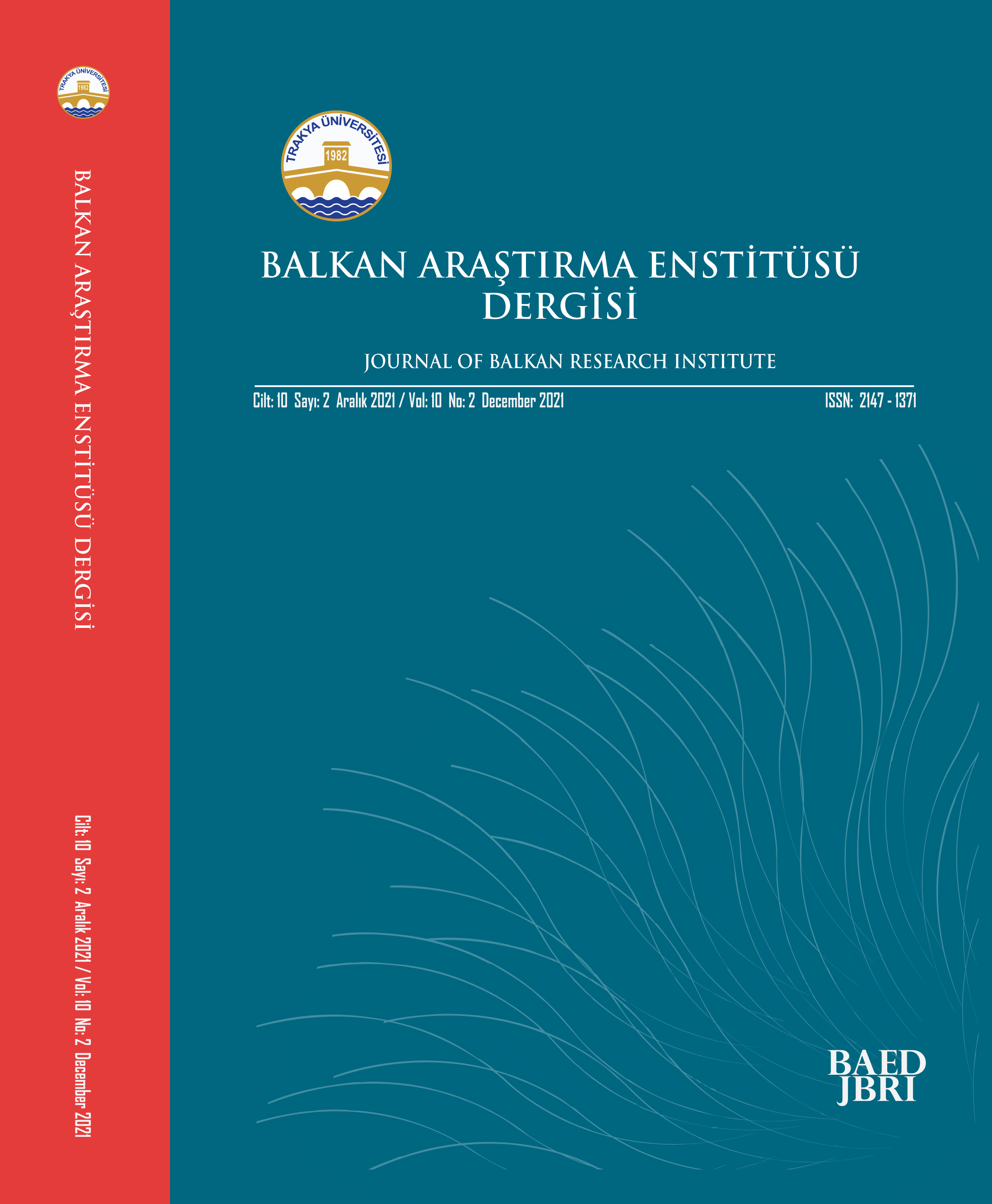ATATÜRK DÖNEMİ BALKAN POLİTİKASI BAĞLAMINDA TÜRKİYE-YUNANİSTAN EK ANTLAŞMASI
TURKEY-GREECE SUPPLEMENTARY AGREEMENT IN THE CONTEXT OF BALKAN POLICY OF ATATURK PERIOD
Author(s): Sezai Öztaş, Gürhan KınalıSubject(s): Politics / Political Sciences, Diplomatic history, Political history, Interwar Period (1920 - 1939)
Published by: Trakya Üniversitesi Balkan Araştırma Enstitüsü
Keywords: Turkish Foreign Policy;Turkish-Greek Treaties;Mustafa Kemal Ataturk;Elefterios Venizelos;İoannis Metaksas;
Summary/Abstract: Before the Second World War, the measures taken against revisionist states in the Balkans were insufficient. Greece and Turkey who wanted to address this issue, signed a new treaty in 1938, in addition to cooperation arising from the expansion of the Pact in the 1930 Treaty of Friendship and the 1933 Sincere Agreement. As a security system with political and military dimensions, the treaty was the culmination of Turkish-Greek relations in the Ataturk period. According to the provisions added to the existing regulations, the soldiers of the state attacking the other state under the conditions would not pass through the other state’s territory. If necessary, it would be countered with a gun and remain neutral. Thus, the two states strengthened the security of their lands against an attack from the middle of the Balkans. They would also prevent attempts to disturb each other’s security or change their government on their land. The alliance regime that was established aimed not only to be suitable for the spirit of the Balkan Pact but also to develop this spirit. Sincere Agreement Pact and Balkan Pact were the results of Turkey’s pacifism and Ataturk’s far-sighted policy. The 1938 Additional Treaty, has been an extension and also the furthest point of his policy.
Journal: Balkan Araştırma Enstitüsü Dergisi -Trakya Üniversitesi
- Issue Year: 10/2021
- Issue No: 2
- Page Range: 557-599
- Page Count: 43
- Language: Turkish

